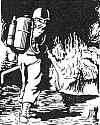Thank you for sharing.

- 100 -
Sophie
GermainGertrude Elion
Ernest Rutherford
James Chadwick
Marcel Proust
William Harvey
Johann Goethe
John Keynes
Carl Gauss
Paul Feyerabend
- 90 -
Antoine
LavoisierLise Meitner
Charles Babbage
Ibn Khaldun
Euclid
Ralph Emerson
Robert Bunsen
Frederick Banting
Andre Ampere
Winston Churchill
- 80 -
John
LockeBronislaw Malinowski
Bible
Thomas Huxley
Alessandro Volta
Erwin Schrodinger
Wilhelm Roentgen
Louis Pasteur
Bertrand Russell
Jean Lamarck
- 70 -
Samuel
MorseJohn Wheeler
Nicolaus Copernicus
Robert Fulton
Pierre Laplace
Humphry Davy
Thomas Edison
Lord Kelvin
Theodore Roosevelt
Carolus Linnaeus
- 60 -
Francis
GaltonLinus Pauling
Immanuel Kant
Martin Fischer
Robert Boyle
Karl Popper
Paul Dirac
Avicenna
James Watson
William Shakespeare
- 50 -
Stephen
HawkingNiels Bohr
Nikola Tesla
Rachel Carson
Max Planck
Henry Adams
Richard Dawkins
Werner Heisenberg
Alfred Wegener
John Dalton
- 40 -
Pierre
FermatEdward Wilson
Johannes Kepler
Gustave Eiffel
Giordano Bruno
JJ Thomson
Thomas Kuhn
Leonardo DaVinci
Archimedes
David Hume
- 30 -
Andreas
VesaliusRudolf Virchow
Richard Feynman
James Hutton
Alexander Fleming
Emile Durkheim
Benjamin Franklin
Robert Oppenheimer
Robert Hooke
Charles Kettering
- 20 -
Carl
SaganJames Maxwell
Marie Curie
Rene Descartes
Francis Crick
Hippocrates
Michael Faraday
Srinivasa Ramanujan
Francis Bacon
Galileo Galilei
- 10 -
AristotleJohn Watson
Rosalind Franklin
Michio Kaku
Isaac Asimov
Charles Darwin
Sigmund Freud
Albert Einstein
Florence Nightingale
Isaac Newton
Scroll above for more
Scientist Quotes Index
Click below to
Scientist Quotes Index
Click below to
Explore 100 Best Science Quotes Topics Pages
by Ian Ellis
who invites your feedback
who invites your feedback
Today in Science History® © 1999-2025 by Todayinsci ®


 Then began the period of reconversion for the Alsaciennes. The
children were taught a new language, new customs, and lived under
a
new type of government. And as we know, this continued until
1918
when the citizens of Metz welcomed the victorious Allied army with
cheers and flowers. Metz had once again rejoined France.
Then began the period of reconversion for the Alsaciennes. The
children were taught a new language, new customs, and lived under
a
new type of government. And as we know, this continued until
1918
when the citizens of Metz welcomed the victorious Allied army with
cheers and flowers. Metz had once again rejoined France. We all know the beginning of the recent chapter - France's surrender in
1940 and Germany's reoccupation of Metz. Later the picture again
changed - the Americans hammered at the forts of Metz and their
German occupants. It was not cavalry and sabers this time - it was
heavy shells, flame-throwers, airplane bombs and oxy-acetylene torches
that melt through the steel doors in the underground passageways.
We all know the beginning of the recent chapter - France's surrender in
1940 and Germany's reoccupation of Metz. Later the picture again
changed - the Americans hammered at the forts of Metz and their
German occupants. It was not cavalry and sabers this time - it was
heavy shells, flame-throwers, airplane bombs and oxy-acetylene torches
that melt through the steel doors in the underground passageways. 




